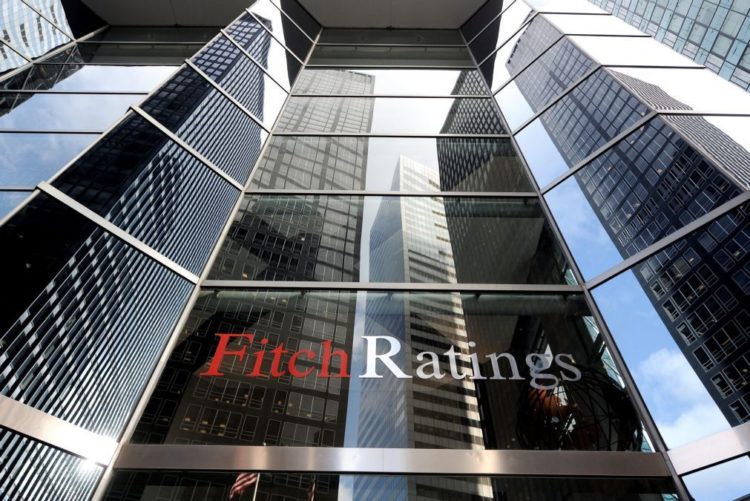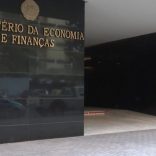Bank of Mozambique expects further economic decline in Q!, albeit at slower pace
Mozambique: Fitch once again affirms country’s rating at CCC+

File photo: Lusa
On Friday, the Fitch Ratings agency decided to maintain Mozambique’s rating at CCC+, three levels above Default but still below the investment recommendation, considering that “substantial risks”, such as high public debt, remain.
Mozambique’s rating has thus once again remained unchanged, as in the assessment of 9 February, and “reflects high levels of public debt, weak public finance management, low GDP per capita, weak external finances, weak governance indicators and a challenging security situation”, write the Fitch Ratings analysts in the note released tonight and consulted by Lusa.
They also acknowledge, as in previous assessments, “robust medium-term growth prospects”, which are “supported by the development of the liquefied natural gas (LNG) sector, or by the US$456 million (€417 million) Extended Credit Facility agreement for three years, signed with the International Monetary Fund in 2022 and in force.
Fitch does not assign an economic outlook (‘outlook’) to countries that have a ‘CCC’ rating, the third above Financial Default (‘default’).
In the analysis, Fitch revises downwards the forecast for Mozambique’s economic growth to 4.0% of gross domestic product (GDP) this year, from 4.5% in the previous assessment and 4.2% in 2025 (4.5% previously), which compares with an expansion of 5.9% last year.
“Fitch forecasts real GDP growth to decline to 4.0% for Mozambique in 2024 and 4.2% in 2025 from 5.9% in 2023. The deceleration in growth relative to 2023 will mostly reflect the lesser contribution from Eni’s floating LNG platform (Coral South) due to its increase in production to close to capacity in 2023,” Fitch states (see the full communique below)
Fitch Affirms Mozambique at ‘CCC+’
Fitch Ratings – London – 09 Aug 2024:
Fitch Ratings has affirmed Mozambique’s Long-Term Foreign-Currency Issuer Default Rating (IDR) at ‘CCC+’. Fitch typically does not assign Outlooks to sovereigns with a rating of ‘CCC+’ or below.
A full list of rating actions is at the end of this rating action commentary.
Key rating drivers
Substantial Credit Risk: Mozambique’s ‘CCC+’ rating reflects elevated government debt levels, weak public financial management, low GDP per capita, weak external finances, weak governance indicators and a challenging security situation. Robust medium-term growth prospects supported by the development of the liquefied natural gas (LNG) sector, the agreement of a three-year USD456 million Extended Credit Facility with the IMF in 2022 and the concessional nature of public external debt with low service costs provide some support to creditworthiness.
Strong Economic Growth Ahead: Fitch forecasts real GDP growth to decline to 4.0% for Mozambique in 2024 and 4.2% in 2025 from 5.9% in 2023. The deceleration in growth relative to 2023 will mostly reflect the lesser contribution from Eni’s floating LNG platform (Coral South) due to its increase in production to close to capacity in 2023.
Economic activity will be supported by falling inflation, easing monetary policy, and the resumption in the construction of Total’s LNG project in Area 1 (Golfinho Atum). We forecast average annual inflation to decline to 3.3% in 2024 from 7.0% in 2023 and expect further monetary loosening from the central bank following the cumulative cut of 225bp to its key policy rate between December 2023 and June 2024 (to 15.0%).
Government Debt/GDP Declining: Fitch forecasts Mozambique debt/GDP to decline to 92.6% in 2024 and 89.9% in 2026, from 97.7% in 2023. The decline in 2024 largely reflects the out-of-court settlement of liabilities related to the loans from the “hidden-debt scandal”, which Fitch includes in its government debt perimeter. We estimate that the agreement with creditors of loans to two state-owned enterprises, MAM and Proindicus, in June 2024 will translate into a net 5.2pp decline in debt/GDP.
We expect debt to decline over 2025-2026, and to accelerate in subsequent years, reflecting the strong nominal GDP growth. Fitch also expects debt at the national hydrocarbons company (ENH), which we include in our government debt figures, to rise over the forecast horizon as the company continues to finance its participation in the Area 1 LNG project.
Debt Management Shortcomings Persist: The government continued to accumulate external and domestic debt arrears in 2024, due to capacity constraints related to debt management. In January it accumulated external bilateral debt arrears with India, South Korea, and Nordea Bank, and in February with the Arab Bank for Economic Development in Africa (a multilateral development bank), all of which have been fully settled. Fitch understands delays in the servicing of domestic debt also persist, although their occurrence and duration has declined relative to 2023.
Fiscal Deficit Declined in 2023: Mozambique’s fiscal deficit narrowed to 4.3% in 2023 from 5.3% in 2022 driven by higher tax revenue and grant disbursements as well as a reduction in expenses for employee compensation. This partially corrected the significant 2022 fiscal slippage that resulted from the poor implementation of a new public sector wage scale. Nonetheless, the 2023 fiscal performance fell short of the IMF programme target of a deficit of 2.7% of GDP, partly due to the smaller-than-anticipated decline in employee compensation owing to unplanned spending in the health sector.
Fiscal Deficit to Narrow: Fitch expects the fiscal deficit to remain broadly unchanged at 4.2% of GDP in 2024 but to narrow to 3.1% in 2025 and 1.8% in 2026. The 2024 deficit will reflect spending pressures associated with the October elections, costs from the settlement of the ‘hidden debt loans’ and higher interest payments. The narrowing of the fiscal deficit during 2025-2026 will be driven by a significant decline in current expenditure, including lower interest payments amid falling financing costs. Employee compensation expenses will decline to below the pre-2022 level in 2026, based on the freezing of base wages (in 2024) and limits on additional hiring.
IMF Programme Supports External Financing: Mozambique completed the fourth review under the IMF’s Extended Credit Facility in June with a mixed performance. The country met three of four structural benchmarks and two of four quantitative performance criteria. The IMF’s executive board approved waivers of non-observance due to their minor and temporary nature as well as the authorities’ remedial measures. Performance under the programme will support access to disbursements from the IMF, the World Bank, the African Development Bank and the US Millennium Challenge Corporation.
International Reserves to Stabilise: Fitch expects Mozambique’s current account deficit to widen considerably to 24.9% of GDP in 2024 and 35.3% in 2025 from 11.6% in 2023, reflecting a significant increase in imports (goods and services) associated with resumption of the construction of Total’s LNG project in Area 1. These imports will be fully financed by investment through the financial account and will have a limited impact on Mozambique’s international reserves. We expect international reserves to increase to USD3.7 billion in 2024 and USD3.9 billion in 2025 from USD3.5 billion in 2023, supported by marginal net LNG export receipts as well as moderating food and fuel import costs.
General Elections Ahead: Parliamentary and presidential elections are scheduled to take place in October 2024. Fitch does not expect the outcome of the votes to lead to any meaningful reversal of the reforms implemented since the beginning of the IMF programme in 2022 or cause any disruption to the development of megaprojects in the LNG sector. The security situation in northern Cabo Delgado region has improved since the deployment of Rwandan and SADC troops in 2021, but the insurgency has yet to be fully supressed.
ESG – Governance: Mozambique has an ESG Relevance Score (RS) of ‘5’ for both Political Stability and Rights and for the Rule of Law, Institutional and Regulatory Quality and Control of Corruption. These scores reflect the high weight that the World bank Governance indicators (WBGI) have in our proprietary Sovereign Rating Model. Mozambique has a low WBGI ranking at 21.4, reflecting the absence of a recent track record of peaceful political transitions, violence associated with the insurgency in the northern part of the country, relatively weak rights for participation in the political process, weak institutional capacity, uneven application of the rule of law and a high level of corruption.
Rating sensitivities
Factors that could, individually or collectively, lead to negative rating action/downgrade
Public Finances: Stress in financing conditions, for example, due to reduced ability to access external financing sources and/or falling demand in the domestic government bond market, for example, as a result of a worsening fiscal position; and/or poor public finance management that could adversely affect payments to private sector creditors.
External Finances: A significant decline in international reserves, for example, reflecting reduced access to external financing, a greater burden from LNG projects on the balance of payments than currently expected or development in the foreign-exchange market.
Factors that could, individually or collectively, lead to positive rating action/upgrade
Public Finances: An improvement in public financial management, reflected for instance, in consistent avoidance of new external debt arrears, accompanied by a continued decline in the government debt/GDP ratio.
External Finances: A significant increase in international reserves, for example, reflecting increased access to external financing and/or stronger export receipts, for example, from the nascent LNG sector.
Sovereign rating model (SRM) and Qualitative overlay (QO)
Fitch’s proprietary SRM assigns Mozambique a score equivalent to a rating of ‘CCC+’ on the Long-Term Foreign-Currency IDR scale. However, in accordance with its rating criteria, Fitch’s sovereign rating committee has not utilised the SRM and QO to explain the ratings in this instance. Ratings of ‘CCC+’ and below are instead guided by the rating definitions.
Fitch’s SRM is the agency’s proprietary multiple regression rating model that employs 18 variables based on three-year centred averages, including one year of forecasts, to produce a score equivalent to a LT FC IDR. Fitch’s QO is a forward-looking qualitative framework designed to allow for adjustment to the SRM output to assign the final rating, reflecting factors within our criteria that are not fully quantifiable and/or not fully reflected in the SRM.
Country ceiling
The Country Ceiling for Mozambique is ‘B-‘, 1 notch above the LT FC IDR. This reflects moderate constraints and incentives, relative to the IDR, against capital or exchange controls being imposed that would prevent or significantly impede the private sector from converting local currency into foreign currency and transferring the proceeds to non-resident creditors to service debt payments.
Fitch’s Country Ceiling Model produced a starting point uplift of 0 notches above the IDR. Fitch’s rating committee applied a +1 notch qualitative adjustment to this, under the Balance of Payments Restriction pillar reflecting the fact that capital controls exist, but they are limited and have not constrained the private sector’s ability to convert the metical into FC and/or transfer funds abroad. The prospects of receiving significant inflows of investment and financing to develop large gas reserves reduce incentives to introduce capital controls.
References for substantially material source cited as key driver of rating
The principal sources of information used in the analysis are described in the Applicable Criteria.
ESG considerations
Mozambique has an ESG Relevance Score of ‘5’ for Political Stability and Rights as World Bank Governance Indicators have the highest weight in Fitch’s SRM and are therefore highly relevant to the rating and a key rating driver with a high weight. As Mozambique has a percentile rank below 50 for the respective Governance Indicator, this has a negative impact on the credit profile.
Mozambique has an ESG Relevance Score of ‘5’ for Rule of Law, Institutional & Regulatory Quality and Control of Corruption as World Bank Governance Indicators have the highest weight in Fitch’s SRM and are therefore highly relevant to the rating and are a key rating driver with a high weight. As Mozambique has a percentile rank below 50 for the respective Governance Indicators, this has a negative impact on the credit profile.
Mozambique has an ESG Relevance Score of ‘4’for Human Rights and Political Freedoms as the Voice and Accountability pillar of the World Bank Governance Indicators is relevant to the rating and a rating driver. As Mozambique has a percentile rank below 50 for the respective Governance Indicator, this has a negative impact on the credit profile.
Mozambique has an ESG Relevance Score of ‘4’ for Creditor Rights as willingness to service and repay debt is relevant to the rating and is a rating driver for Mozambique, as for all sovereigns. As Mozambique has a fairly recent restructuring of public debt in 2020, this has a negative impact on the credit profile.
The highest level of ESG credit relevance is a score of ‘3’, unless otherwise disclosed in this section. A score of ‘3’ means ESG issues are credit-neutral or have only a minimal credit impact on the entity, either due to their nature or the way in which they are being managed by the entity. Fitch’s ESG Relevance Scores are not inputs in the rating process; they are an observation on the relevance and materiality of ESG factors in the rating decision
For more information on Fitch’s ESG Relevance Scores, visit
www.fitchratings.com/topics/esg/products#esg-relevance-scores.












Leave a Reply
Be the First to Comment!
You must be logged in to post a comment.
You must be logged in to post a comment.